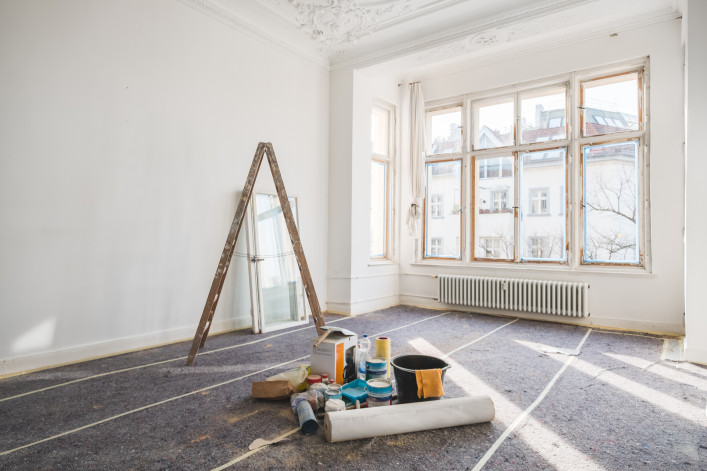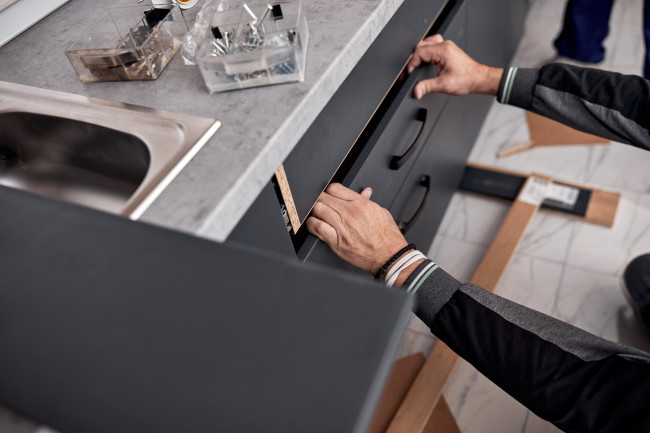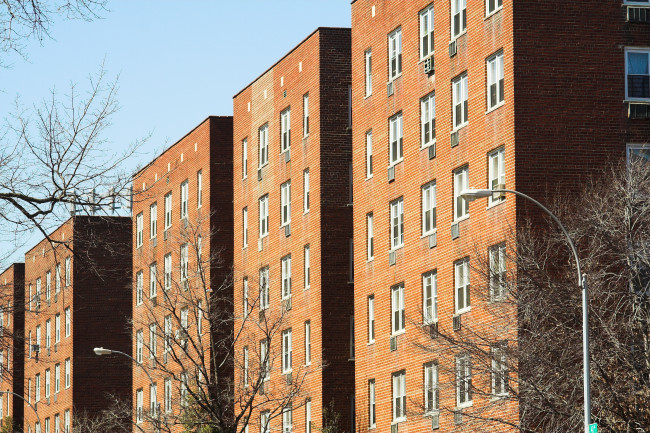My landlord wants to renovate my rent-stabilized apartment. Can I pay for the upgrade to avoid a rent hike?
- Landlords can increase rents by a limited amount after an apartment renovation
- The most an owner could raise your rent if they renovate is $179 per month

If your landlord agrees to your plans, make sure to get it in writing and be sure to hire a licensed professional.
iStock
I've heard that rent-stabilized tenants face a rent increase as a result of a major apartment renovation. Is it possible for me to pay for the upgrade myself and avoid a permanent rent increase?
If you get your landlord’s permission, you can hire a licensed contractor and pay for the renovation yourself, though that’s not very common, according to our experts.
One of the ways your landlord can raise your rent, outside of annual increases set by the Rent Guidelines Board, is through a renovation, dubbed an individual apartment improvement (IAI). State legislators recently raised the maximum amount a landlord can raise your rent through an IAI, along with passing rent protections for market-rate renters.
Under the new limit, when a landlord makes an upgrade to an apartment—such as installing new appliances—they can increase a tenant's rent by 1/168th of the cost in buildings with 23 or more apartments, or 1/180th of the cost in buildings with more than 35 units. (Minor repairs, like spackling over holes in the wall or grouting bathroom tiles aren’t significant enough to qualify for a rent hike.)
These rent increases are now permanent, and can’t be used to cover more than $30,000 of work, under new caps passed in the state budget. That means your landlord can’t raise your rent more than $167 or $179 per month, depending on the size of your building. And your landlord needs your consent to renovate while you live in the apartment.
Your landlord has a reason to let you renovate
Before rent law reforms passed in 2019, a landlord was incentivized to do this work themselves and raise your rent, because if they raised it above $2,774.76 the apartment would be deregulated, said Sam Himmselstein, a lawyer who represents residential and commercial tenants, and tenant associations (and FYI, a Brick sponsor).
Owners can no longer deregulate apartments based on price, so your landlord may be more open to you doing the work yourself, Himmelstein added.
“Given the repeal of deregulation and the smaller percentages of the IAIs, it would seem logical that landlords would allow it, because they would be getting improvements to their apartments at no cost to them,” Himmelstein said.
Still, Himmelstein hasn’t seen any cases where this issue has come up in the past five years. And renovations usually take place when a rent-stabilized apartment is vacant because they can be disruptive to the tenant living there.
Why you shouldn’t renovate without permission
It's likely that your lease forbids you making any substantial upgrades to your apartment. (Minor changes like a new coat of paint are okay, but you'll have to repaint the original color before you move out.)
"Assuming you are rent stabilized, you must first seek permission from the landlord before you consider doing any upgrades yourself," said Dennis Hughes, a broker at Corcoran. "Keep in mind all vendors must be licensed and insured."
If your landlord agrees to let you pay for and oversee an upgrade, make sure to document everything.
"If the tenant and landlord do agree to this, that agreement must be in writing," Himmelstein said. "In order to qualify [as an IAI], the work must be either new equipment, such as appliances, cabinets, sink, or bathtub improvements; ordinary repairs don’t qualify."
—An earlier version of this article contained reporting and writing by Alanna Schubach.
Trouble at home? Get your NYC apartment-dweller questions answered by an expert! Send us your questions at experts@brickunderground.com.
You Might Also Like






























